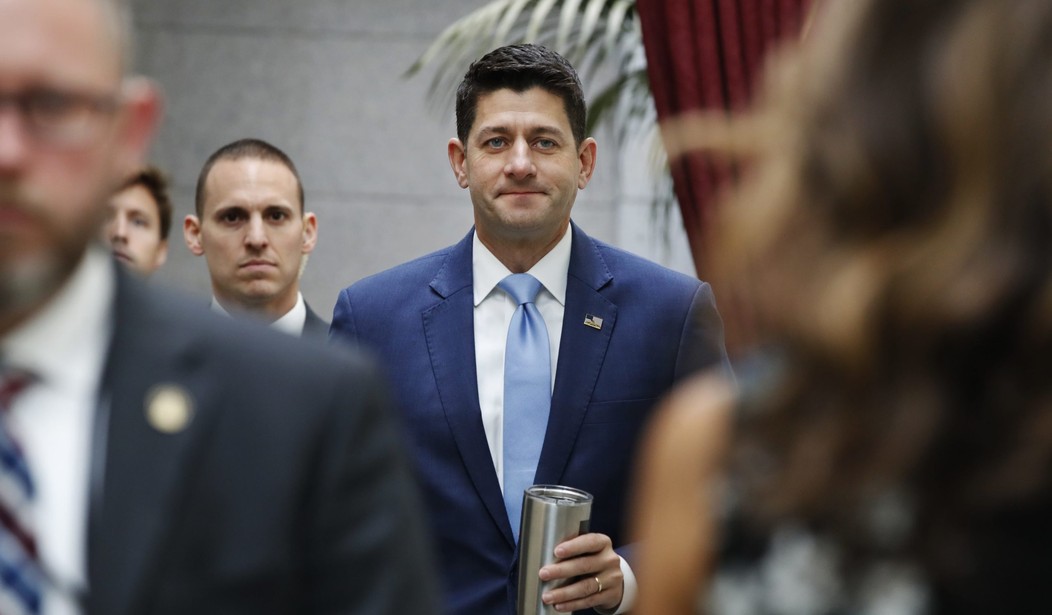WASHINGTON — House Speaker Paul Ryan (R-Wis.) lectured interns this morning on civility in public discourse and on social media, telling the young congressional aides that the best advice he received on the Hill came from former Rep. Barney Frank (D-Mass.).
Ryan said in the Congressional Summer Intern Lecture Series address that during his freshman orientation, he sat down for breakfast with Frank.
“He told me that what he loved about the House is how it is a genuine meritocracy. You get ahead based on the power of your ideas, and your ability to make a persuasive case for them,” Ryan said. “These days, we don’t even really set out to persuade anymore. We just hit each over the head until the music stops.”
“Here is the way I see this: it is no longer just that our passions are getting the best of us. More and more, our politics is enabling the worst in us,” he said. “We no longer see our opponents as ‘the other side,’ but simply as ‘the others,’ as targets. As someone not fundamentally like us. The more politics preys on our divisions, the more we become defined by them. It leads to a view of life and society as a zero-sum game where one group has to win at the expense of the other.”
Ryan warned against retreating “to the comfort, and conformity, of our tribes,” as “this blinds us to the perspectives that others bring to the table.”
“In turn, we ourselves don’t reach out, don’t offer our time and energy. And social media just amplifies all of these trends. It is an industry where you can make money feeding fear and resentment,” he said. “We are caught in this paradox where we are more connected than ever, but we could not feel more disconnected or more alienated.”
“…We just cannot let our divisions overtake our basic respect for another. We need to recognize that we are all less-than-perfect. We all fall short, we all struggle. We all want to be heard, and to be needed. Our humanity spurs us to find perspective, to listen, and to lend a hand. This is without question the greatest antidote, the greatest antibody, we have against the forces of alienation.”
Ryan stressed that “for all the provocation” today, “there isn’t much that’s actually thought-provoking. We rarely skim below the surface.”
“This is not just about good manners; it is about the manner of how we govern. It is about our ability to solve problems,” he continued. “Civility is a civic imperative. A healthy discourse allows us to navigate our disagreements in the search for common ground. To accept good ideas, even if our side didn’t come up with them. Too often right now, if one side is for it, the other is against it. No questions asked. At this point, we have reduced our debates to a stream of hot takes and tweets.”
Ryan told the interns that even though he can’t control how his Twitter mentions get “a little heated,” he can “control my own actions.”
“So I choose not to respond in kind, but to respond with kindness. Just let people get stuff off of their chest, and move on,” he said. “I know that snark sells, but it doesn’t stick. It doesn’t last. It doesn’t unite people around a bigger idea or a greater cause.”
In the subsequent Q&A session, an intern for Rep. Kathleen Rice (D-N.Y.) asked Ryan why there’s a “lack of political courage” in the party to stand up to President Trump’s “constant condemnation of the special counsel” and Robert Mueller’s probe.
“Is it still going on? It is, isn’t it? It hasn’t been ended, it’s still going on. But if we want to take our Article I seriously, we have to oversee the executive branch,” Ryan replied, noting the need for congressional oversight of the executive branch’s use of the Foreign Intelligence Surveillance Act.









Join the conversation as a VIP Member